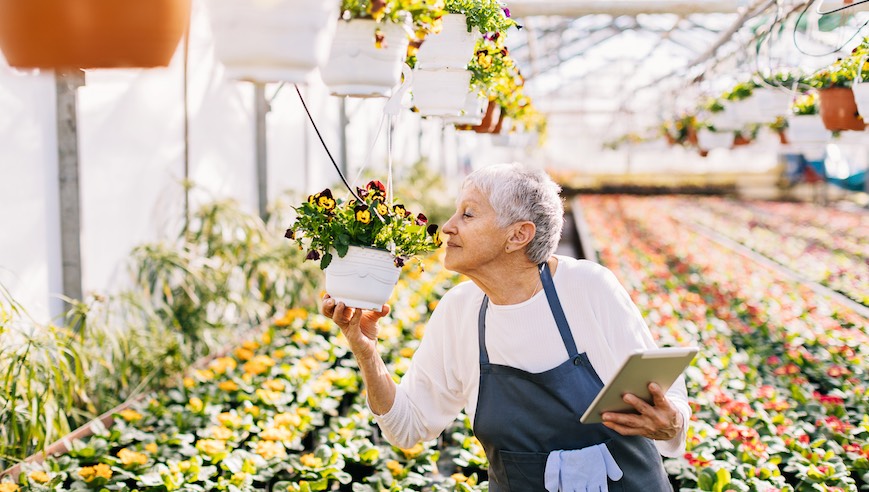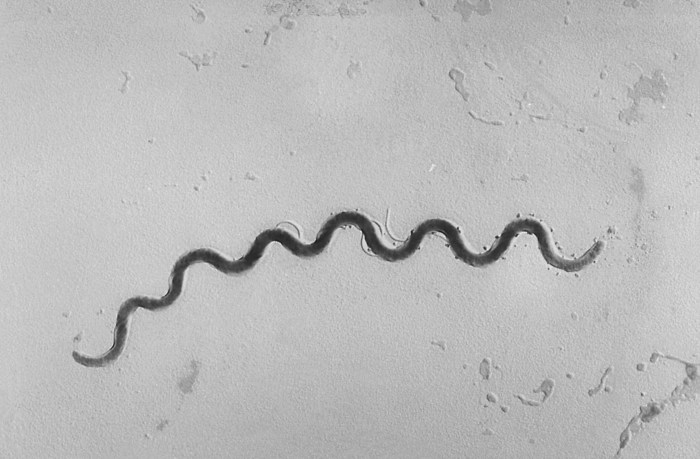Can keeping a plant on your desk at work help you have a better day? If you turn your apartment into a “house jungle,” per the recent Washington Post trend piece on millennials, will it improve your mental health, or just makeover your Instagram feed? Studies have shown that spending time in nature can soothe the mind, but what is the effect of bringing nature to you?
Matthew J. Wichrowski is a senior horticultural therapist at the Rusk Rehabilitation Center at NYU Langone Medical Center. Every day, he uses plants and planting exercises to help rehabilitate patients suffering from mental and physical disabilities.
Wichrowski works out of the center’s plant room, where patients stop by for hour-long sessions in “plant and sensory exploration.” (There are also therapy bunnies)! For those who can’t leave their ward, such as epilepsy and psychiatric patients, Wichrowski wheels a cart of plants to them.
In a typical session, “we explore the sensory aspect, touch and feel, describe the leaves, the colors and flowers, fragrance, and talk about how to use them,” Wichrowski explains.
Wichrowksi notes that spending time in biophilic environments has psychological benefits, including improving one’s mood and decreasing stress. He describes something called “attention restoration theory,” the idea that concentrating on nature can give us a sort of mental vacation and improve our ability to focus afterwards — in effect, restoring our attention.
There are physical benefits, as well. A 2005 study which Wichrowski co-authored, published in the Journal of Cardiopulmonary Rehabilitation, found that horticultural therapy sessions led to a reduced heart rate in cardiac rehabilitation inpatients.
There’s also the psychological effect of caring for a living thing. At the end of each session, the patient selects a plant to repot and tend to him or herself, which fosters a sense of personal accomplishment and wellbeing, says Wichrowski.
Eliza Blank, the founder of The Sill, a plant room and delivery service in Manhattan, agrees that “surrounding yourself with plants is one of the most uplifting things you can do when it comes to your day-to-day emotional well-being,” as she puts it. “There’s something to be said just for taking care of something, the relationship that you have, the plant depends on you for survival.”
Plants can also detoxify indoor spaces, removing carcinogens in building materials and carpeting, such as formaldehyde, ammonia and benzene. The most well-known research into this is the 1989 NASA Clean Air Study, which studied which plants most effectively filtered the air in space stations.
If you’re a newbie to the plant world, here are Blank’s suggestions for easy-to-care plants to get started with.
For low-lighting
ZZ Plant: “It can basically tolerate all light levels,” from a stairwell to a dark corner of your apartment, Blank explains.
Snake Plant: Also known as mother-in-law’s-tongue, the evergreen perennial thrives in low lighting and requires minimal watering.
Blank notes that because both the ZZ and the Snake Plant grow vertically, they function as great space savers, ideal for a small apartment or your office desk.
For medium light
Blank fancies a purpley, waxy rubber tree. “It has a little bit of color, it’s a vertical grower, I water it once a week and it has beautiful thick, glossy leaves,” Blank says.
If you have pets and need to keep your plants up high, she suggests a hanging plant, such as philodendrons, or spider plants.
For bright light
If you are lucky to have bright light in your home or office, go for succulents, which don’t require much water.
















